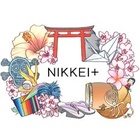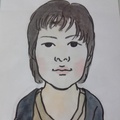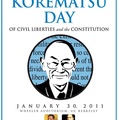You’re bilingual! Hey I wanna hear you speak English! Can you say something in English?
Here in Japan, my English stands out as a skill that’s still “rare” enough to get people’s attention, both among my close Japanese friends and total strangers whenever I throw out random English words on the street.
I moved to the US when I was 16 years old and never identified myself with any of the existing Japanese and/or American groups whether it be a Japanese-American community, a group of Japanese international students on campus, or a community of so-called “expatriate families”—until a few years later I learned the term “1.5 generation immigrants.”
A 1.5 generation immigrant is someone who was born in a foreign country and immigrated to a new country before or during adolescence. They tend to be more easily adaptable to different cultures and quicker to learn a new language, according to the Wikipedia description.
Most of them “naturally” grow up to be bilingual with deep understanding of the culture of their origin and the new country. They can more easily identify themselves with a balanced combination of multiple cultures, though the degree of attachment to either one or both may vary. While I don’t believe that these statements are always true, my experience in America was close to being one.
By definition, being a 1.5 generation immigrant especially that of nikkei, enables one to “pass” both as Japanese and American. Why would anyone try to “pass” as one and not the other? Why don’t you present yourself as both? Some people might ask.
Now that I know my English can help me get a job in certain fields, I don’t ever hesitate to tell people that I can speak English. But my language skills are not necessarily tied to my being “American” or any other nationality (if I grew up in other English-speaking countries) I learned to make that distinction between language and place when I was in high school. It might have been a small incident, but for me it was fearful enough to change how I presented myself in public for the rest of my school years.
I went to three different high schools. The first one was the only school in the district that offered a special program for second language speakers like me who were brought to the country totally unprepared. While I’m greatly thankful for all the generosity of the school that could otherwise have said “no” to all of us and closed its door to any students whose English proficiency wasn’t high enough to join regular classes, I have to say that it was within that program I experienced a feeling of shame in not being able to express myself in the language that I used to love but never had a chance to use outside of class.
After a year of intensive training, I was finally allowed to attend classes at school in the area where I lived. It was a predominantly “white” school, completely different from the previous school I attended, where more than half of the student population was of Asian descent—yes, although the great majority of them were probably born and raised in the US and grew up speaking English as their first language, we can’t deny the difference in visual perception. I was still struggling to assimilate even after a year of immersion in English-speaking environment, so I was overly excited and relieved to find another Japanese girl in my US history class. Immediately I struck up a conversation with her in Japanese.
Since it was the only class where I had someone to talk to in my mother tongue, I was happy to have found something I could look forward to in an otherwise very secluded high school life—that is, until a few days later when two of my other classmates started to attack me with bits and pieces of trash. Sometimes they even threw pennies at me—which by the way I later told my friend as a joke, “Could it be part of their religion or something?”
I told my teacher about the incident, and eventually they stopped doing it. Oddly enough, it didn’t even occur to me that they actually tried to hurt me physically. How could I get angry at someone who so kindly throws money at me? And why would anyone do such a thing in the first place? I didn’t get a chance to ask this question, so I came up with my own conclusion: that is, they must have thought I was different—so different that they had to throw pieces of trash and pennies to see how I would react.
Looking back, I can now talk about this experience as a funny anecdote, but at the age of 17, I didn’t know how to deal with it emotionally. Part of me wanted to stay different, while the other part desperately wanted to conceal my Japanese identity. Ultimately I decided to follow the latter and for the rest of my school years I pretended that I was American and could only speak English.
It worked well for the most part, except in some classes where I had to introduce myself and tell everyone where I came from; but even in those situations, I tried to keep my Japanese part as minimum as possible and never spoke a word of Japanese even when I saw other Japanese students in classrooms. I was just so glad that I didn’t stand out anymore.
The very fact that I was able to pass both as Japanese and American made me question the whole concept of one’s identity which is often based on his/her birthplace. While language, too, plays a crucial role in determining how we define ourselves, now I have come to enjoy being neither, either, and both.
© 2013 Mina Otsuka








